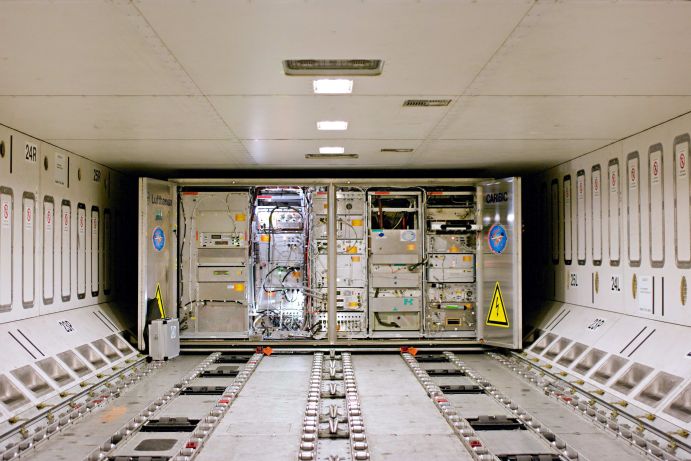IAGOS - In-Service Aircraft for a Global Observing System
IAGOS is a European research infrastructure belonging to the European Strategy Forum for Research Infrastructures (ESFRI Roadmap).

IAGOS has established a research infrastructure for sophisticated observations of the atmosphere's composition on a global scale. The project utilized up to 15 Airbus A330/340 long-range passenger aircraft to continuously measure the major reactive and greenhouse gases. Furthermore, a modified airfreight container equipped with instruments was deployed to analyze a broad range trace substances.
IAGOS provides a key competence to the worldwide observation system for observing climate change and the atmosphere's composition. The collected data on nitrogen oxides (NOx and NOy), water vapour and aerosol particles form a core component of the total IAGOS dataset. Nitrogen oxides play a key role in the global budget of both the tropospheric ozone and the OH radical, which controls the lifespan of several trace substances in the atmosphere. Atmospheric aerosol particles still cause a majority of the uncertainty in the prediction of global climate.
The Federal Ministry of Education and Research (now Federal Ministry of Research, Technology and Space, BMFTR) has been funding IAGOS's development in its pilot- and main phases since November 2012. This development ended in the middle of 2022 with the infrastructure's operational maturity.
IAGOS is able to nearly instantly transfer its globally collected data to weather services and research institutes, which convert them into weather predictions and include them in their research activities.
Last updated on



